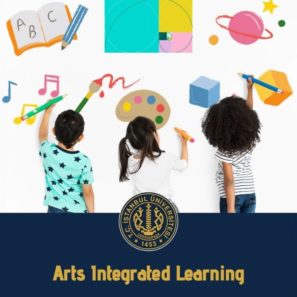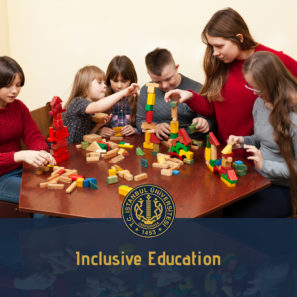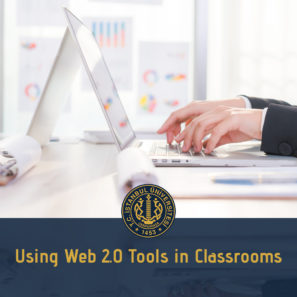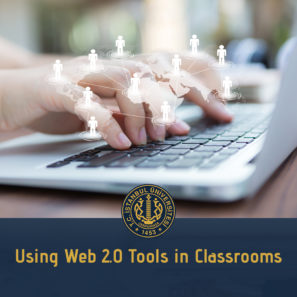Preparatıon:
The participants might find it useful to read some of the below listed reading material before joining the training:
Owens, R. G., & Valesky, T. C. (2007 or newer edition). Organizational behavior in education: Adaptive leadership and school reform (Ninth Ed.). New York, NY: Pearson, Allyn and Bacon.
Delta Publishing. (2006). Understanding and Managing Organizational Behavior, available online via google search.
Baurer, T. & Erdogan, B. (2012). An introduction to organizational behavior, available online via google search.
Chance, P. (2009). Introduction to educational leadership & organizational behavior: Theory into practice (2nd Edition), New York, NY: Pearson, Allyn and Bacon.
Owings, W. A., & Kaplan, L. S. (2011). Leadership and Organizational Behavior in Education: Theory Into Practice, New York, NY: Pearson.
Robbins, S. P., & Judge, T. A. (2012). Organizational behavior (15th ed.), New York, NY: Prentice Hall.
Course descrıptıon
This course offers an introduction to established and emerging trends, knowledge, theory, and research in the field of organizational behavior in educational organizations. It is designed to offer an insight to understand the factors and mechanisms such as educational leadership, employees’ behaviors and attitudes driving human/employee behaviors within organizational contexts. We will take a unique holistic approach that examines not only the interface between the individual and the organization, but also the effects of non-work factors on work attitudes, emotions, and behaviors in school settings.
Individuals do not leave their identities and experiences at the workplace door, but carry these experiences with them into their work environment. We know that family and work interact in complex, and yet to be fully articulated ways. Scholars are just beginning to assess the effects of community on work experiences. Naturally, various characteristics of organizational contexts and their effects on work attitudes and behaviors of employees will be an important focus of this course.
In other words, we will look at the attitude and behavior employees in educational organizations as well as leadership practices from different perspectives. This way, you will be challenged to move beyond traditional perspectives, which usually look at the organizational behavior from a single angle, such as only from individuals’ characteristics, or organizations’ contextual attributes. We will work together to develop integrative frameworks (e.g., three-by-three framework = determinants, processes, and outcomes versus person, teams, organization, (and environment)) that explain individuals’ behaviors, cognitions and emotions as embedded phenomenon nested within organizational, community and societal contexts. This way your approach to the phenomenon will be more inclusive, comprehensive, thus, more realistic. Availability of such approach for the analysis of organizational behavior is both a challenge and a strength.
Methodology
The organization of the course content and emphasis on leadership practices and management of organizational behaviors in educational settings. Class activities and instructional methods will consist of lectures, class discussions, in-basket exercises, student presentations, and group level problem solving exercises. All these capacity building activities are designed to improve scholarship (research) skills on meaningful and timely educational issues pertaining the management of organizational behavior of educational workforce for improved effectiveness of schools and school systems.
Learnıng Outcomes
Upon completion of this course, students will be able to:
1. Develop an ability to employ conceptual frameworks and lenses for the systematic analysis of organizational behavior.
2. Understand the role of the educational leadership as a significant determinant of organizational behaviors of employees,
3. Understand the role of individual variables; nature and attributes of organizational structures and organizational process in influencing performance of individuals, teams, and organizations at work.
4. Contribute to the efforts of creating or developing effective organizations through the alignment of individual variables, organizational structures, and/or organizational processes.
Follow-up
The participants will be required to develop and share their own integrative frameworks (e.g., three-by-three framework = determinants, processes, and outcomes versus person, teams, organization, (and environment)) that explain individuals’ behaviors, cognitions and emotions as embedded phenomenon nested within organizational, community and societal contexts.
Specıfıcs
This standard indicative daily program might be personalized on participants’ needs and professional profiles. Networking, preparation, and team build up activities to be located on the first day; and follow up, specific needs and cultural activities on the last day.
Course Venue
İstanbul University- Cerrahpaşa Continuing Education Center
Course Date
| Date | Course Times | Course Content |
| Day1 | Defining Tasks: Organizational Behaviors and Leadership • Course Introduction • Teambuilding exercises • Needs and expectations evaluation • Overview on the antecedent, processes, and outcomes of organizational behaviour • Group works and plenary discussion on the organizational behaviors and educational leadership |
|
| Day2 | Introducing 3 by 3 tool kit as a structured point of view Explaining the role of human factors, organizational structures, and organizational processes as they influence performance of human, team, and overall organization Introducing conceptual framework using the 3 by 3 tool kit |
|
| Day3 | Student practices focusing on developing conceptual framework • Exploring best practices on using 3 by 3 toolkit to develop conceptual framework • Practical group work and exercise • Developing a conceptual framework using 3 by 3 tool kit including your research interest |
|
| Day4 | Identifying a research proposal based on selected topic Student will identify an authentic research project topic focusing on leadership practices and management of organizational behavior in educational settings |
|
INSTRUCTORS
Program Coordinator
Instructors
The number of partIcIpants
5 – 15 participants
CertIfIcate
Digital certificate.
Type of EducatIon - Place
Face to Face or Distance Education
PAYMENT
You can choose one of the following payment methods EFT and Credit Card.
BANK ACCOUNT INFORMATION
Euro Account
Banka Adı (Bank Name): TC Halk Bankası
Şube Adı (Branch Name): Cerrahpaşa
Hesap No (Account ): 0058 1000 60
SWIFT: TRHBTR2A
Explanation: İstanbul Üniversitesi Cerrahpaşa Sürekli Eğitim MerkeziEUR İBAN: TR51 0001 2001 5300 0058 1000 60
İlgili ürünler
Erasmus+ KA1 Courses
Erasmus+ KA1 Courses
Erasmus+ KA1 Courses
Erasmus+ KA1 Courses
Erasmus+ KA1 Courses
Erasmus+ KA1 Courses
Erasmus+ KA1 Courses
Erasmus+ KA1 Courses










